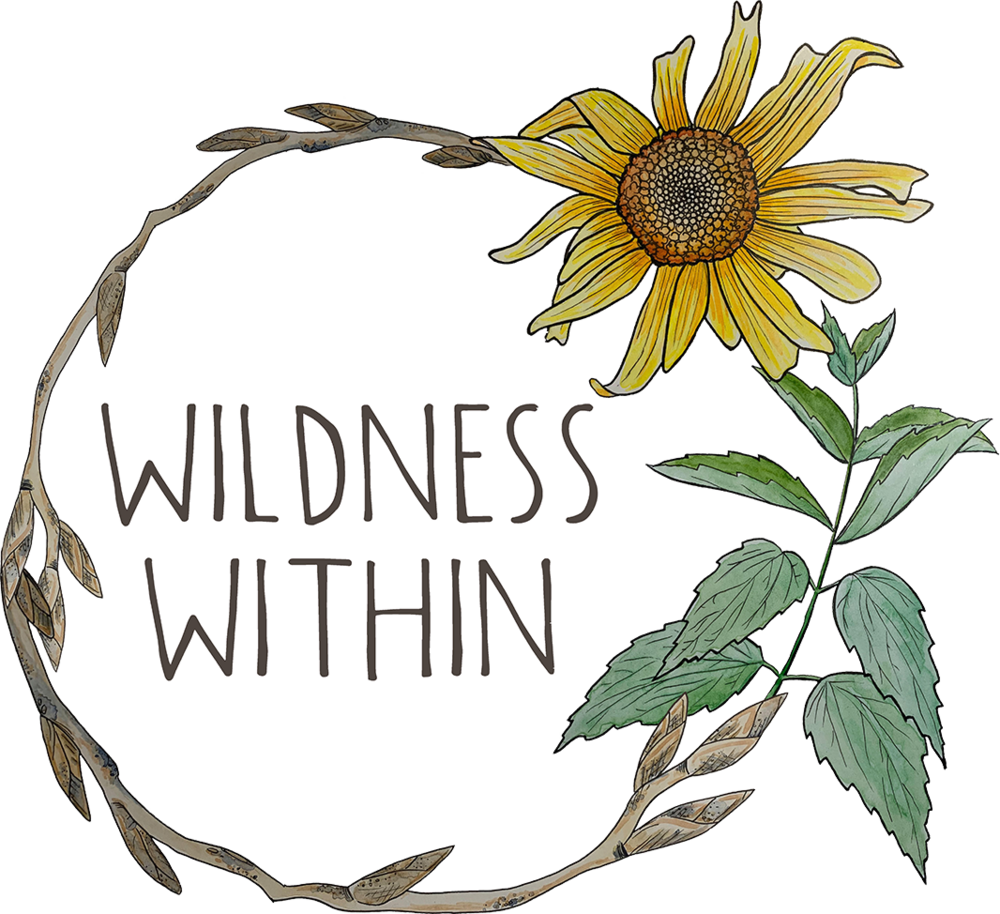“Ego borago gaudia semper ago.”
(I, Borage, always bring courage.)
-Herbalist John Gerard, 1597
Common Names: Burrage, Beebread, Starflower
Botanical Name: Borago officinalis
Plant Family: Boraginaceae, Borage Family
Parts Used: Leaves, Flowers
Actions: diaphoretic, expectorant, diuretic, anti-inflammatory, emollient, refrigerant, febrifuge, aperient, galactagogue, pectoral (Systems affected: Lungs, Heart)
Habitat: Borage has roots in European ancestry. It grows wild throughout Europe and can be found in North America as a garden vegetable plant. It is quite easy to grow, in fact some farmers think it’s “unruly”.
Collection: The leaves should be gathered when the plant is begging to bloom in the early summer. Collect when dry. Harvest flowers as they begin to open. The flowers will continue to bloom well into the Fall. Enjoy the flowers in salads and summer meals.
Borage Medicine:
Heart Strengthening
Borage brings courage to gloom and brightens spirits. Borage is for courage. This herb was used in folk tradition to help people make decisions... say a man might be able to commit and propose to a woman (especially if she served him a cup of borage tea). Try a Flower Essence of Borage to help uplift and encourage the soul. It brings lightness and optimism to heavy-heartedness and lack of confidence in facing difficult circumstances.
ADRENALS, STRESS AND NERVOUS EXHAUSTION
I mainly use Borage as an adrenal tonic. David Hoffman states that “Borage acts as a restorative agent on the adrenal cortex, which means that it will revive and renew the adrenal glands after a medical treatment with cortisone or steroids.” The tea or standard infusion of this plant can be used over a period of time to aid adrenals. A tincture of the flower and fuzzy stems, can further help tonify the adrenal glands.
As the saying goes Borage is for Courage. This herbs ability to support and nourish the adrenals can help someone suffering emotionally or dealing with severe nervous exhaustion. In a highly competitive society, we are constantly driving ourselves towards self-criticism and exhaustion. Mathew Wood recommends pairing Borage with Passionflower as a nervine tea.
Fevers
Borage flowers encourage sweating while also promoting coolness, whereas the leaves are a diuretic. Together, this plant has the ability to lower a fever. A tea with dried plant material would help reduce a persons temperature during a fever. Recommended tea dosage is 10 gams of plant material in a liter of boiled water.
Lung Congestion
Make a tea of this herb and feel what happens when you take a sip. Or better yet, suck on a fresh flower in your mouth and observe what happens. Borage has a high mucilage content. This serves as a soothing remedy for respiratory issues and sore throats. It is a decongestant for the lungs while also reducing any inflammation. Combine with mullein and marshmallow flowers for a truly soothing expectorant.
Mother’s milk
Some say that the leaves and seeds of this plant help stimulate the flow or milk in nursing mothers. Others say its within the constituents of borage flowers that helps aid in milk flow. According to Isla Burgess, : It is used by Arabs as a salad herb; the women eat it to increase their milk when nursing babies.”
Skin Health
Have you heard of Borage Seed Oil? This oil is rich in polyunsaturated fats and is said to be inferior to evening primrose oil (!). Both of these oils have Gamma Linoleum Acid (GLA) which is used to reduce inflammation, boost immunity and help maintain cell membranes in painful inflammatory disorders (arthritis anyone?). An infusion of fresh Borage leaves and flowers in jojoba or rose hip seed oil can help treat dry, patchy skin and rosacea.
Starflower Face Serum by Kristine Brown:
This face serum is wonderful for treating dry, patchy skin and rosacea. For best results, it should be used for 28 days straight which is a full cycle for skin regeneration. For treating rosacea, apply for 56 days straight.
Tools:
Knife and cutting board
Mini crockpot or double boiler
Strainer
Dark Bottle
Label
Ingredients:
1 cup Fresh Borage leaves and flowers
8 oz. Jojoba oil
2 oz. Reship seed oil
Directions:
Start by chopping up your Borage leaves and flowers.
Place a handful of chopped Borage in the mini crockpot or double boiler and cover with Jojoba oil.
Gently heat for 8 hours. (You may need to unplug and let the crockpot cool off if it gets too hot.)
You do not want your oil to boil or your Borage to fry.
Strain off the plant material and compost it.
Mix 6 oz. of the infused oil with 2 oz of Rosehip seed oil.
Pour into a dark bottle and label.
Store in the refrigerator.
Apply to face morning and evening after your usual cleansing routine.
References:
Planetary Herbology by Michael Tierra
The New Holistic Herbal by David Hoffman
Common Herbs for Natural Health by Juliette de Bairacli Levy
Herbal Roots Zine by Kristine Brown
The Earthwise Herbal: A Complete Guide to Old World Medicinal Plants by Matthew Wood



